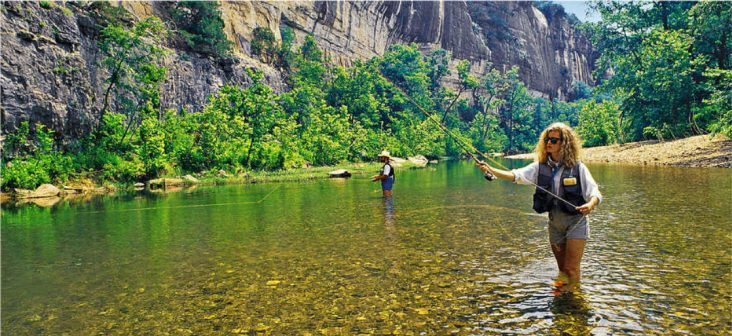Congress considers proposed recreational tourism impacts study nationwide
by November 21, 2016 10:15 am 954 views

Congress will consider legislation that would require the Secretary of Commerce to assess and analyze outdoor recreation economic impacts nationwide. House bill 4665 (H.R. 4665) is now under consideration by the U.S. Senate, according to the Congressional Record. The industries studied would include fishing, hiking, camping, bicycling, and other recreational activities.
If passed, it would allow for a broad study by the federal government of recreational activity impacts in the United States. The bill would require the study to be completed in two years. Lawmakers hope a comprehensive study will help them craft better legislation and business policies in the future.
“This industry has become a significant engine for economic growth and job creation in the United States,” Congressman Michael Burgess, R-Texas, said. “The industry’s full economic impact has not been measured and not accounted for like other economic sectors. H.R. 4665 would ensure that the outdoor recreation economy is measured and is accounted for by the federal government as part of the country’s gross domestic product, (GDP), as it has done for many other economic sectors.”
The Outdoor Industry Association estimates $646 billion is spent by recreational activity consumers each year. More than 140 million people nationwide participate in these types of activities annually. It directly leads to 6 million jobs per year, according to the Congressional Record.
Arkansas Parks and Tourism Executive Director Kane Webb told Talk Business & Politics he hasn’t read the bill, but any attempt to formulate better economic data is good for the state. Arkansas had 28 million visitors last year and it generated a record-setting $7.2 billion in visitor spending, an increase of 9% in 2015, according to the state. And, those numbers could be even higher in 2016, he said.
“This legislation could be promising … tourism is the fastest growing industry in the state,” Webb said.
Arkansas’ tourism economy is rooted in recreational activities, Webb said. The state is well-known for its lakes, rivers, hiking, fishing, camping, and other outdoor offerings. One recent statistic showed that more than 1 million people camped out last year, the first increase in campers in decades, Webb said.
One aspect of the recreational tourism economy that is not well understood is how it affects the large manufacturing sector, according to the Congressional Record. It’s a component that has not been studied, but it’s a key element in understanding how the overall economy is impacted by recreation.
Webb said it’s difficult to speculate about a bill he hasn’t read or one that hasn’t even been presented in its final version or passed, but he said his department would be interested in aiding the study effort if possible.
How the study will be conducted and how much it will cost was not included in the bill’s language. The bill, as it is currently written, specifies no money will be allocated to fund the study. When the bill will be considered by the senate was not released. It’s on the calendar to be considered.
Once considered, a modified bill between both chambers will be written and then members will vote on the final draft. If or when that will happen has not been determined.
The Secretary of Commerce may consider employment, sales, and contributions to travel and tourism, and such other contributing components of the outdoor recreation economy of the United States as the Secretary considers appropriate, according to the bill.
The Secretary may also consult the heads of such agencies and offices of the Federal Government as the Secretary considers appropriate, including the Secretary of Agriculture, the Secretary of the Interior, the Federal Recreation Council, the Director of the Bureau of the Census, and the Commissioner of the Bureau of Labor Statistics; and representatives of businesses, including small business concerns, that engage in commerce in the outdoor recreation economy of the United States, according to the bill.
The bill had 25 sponsors, 13 Republican and 12 Democrat. No Arkansas Congressmen were listed as sponsors.
